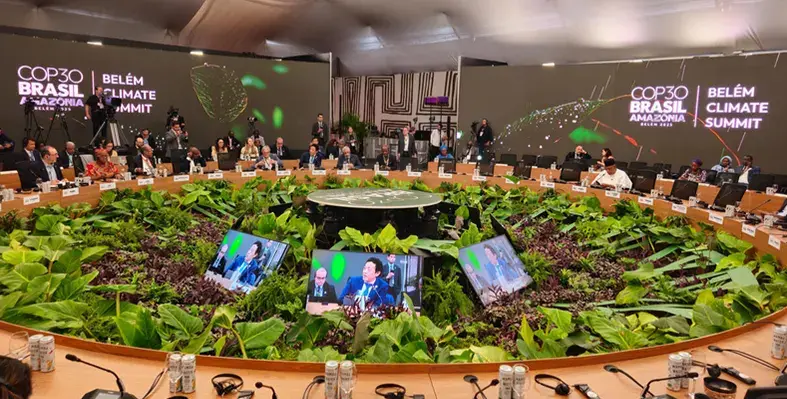The Food and Agriculture Organization of the United Nations (FAO) has raised concerns that the global shortfall in climate finance is undermining efforts to transform agrifood systems, a sector with the potential to cut global emissions by up to one-third.
Speaking at the Belém Climate Summit ahead of COP30, the FAO emphasised that the gap in funding represents “a lost opportunity” to drive sustainable change.
Convened by Luiz Inácio Lula da Silva, Brazilian President the Summit gathered global leaders, ministers, and international agencies to explore climate solutions that prioritise fair energy transitions, biodiversity protection, and forest conservation. The discussions set the stage for the upcoming United Nations Climate Change Conference (COP30), scheduled for 10–21 November 2025 in Belém.
At COP30, FAO will underscore the importance of science-based agrifood solutions in reducing emissions, enhancing carbon capture, restoring ecosystems, and strengthening resilience, while safeguarding food security for the 1.2bn people who depend on these systems.
“From restoration of degraded agricultural lands to resilient crops and sustainable aquaculture and livestock, we have the solutions that deliver across sectors,” said FAO Director-General QU Dongyu in a speech delivered at the General Plenary Leaders Dialogue.
Examples from Brazil’s Amazon region highlight this potential: agroforestry projects are reviving degraded lands, supporting rural livelihoods, and providing “a triple win for biodiversity and food diversity, for food security, and for the climate.”
However, FAO warned that progress is constrained by limited investment. Despite contributions from the Green Climate Fund and the Global Environment Facility, forestry, livestock, fisheries, and crop production received only 4 percent of climate-related development finance in 2023.
“For a sector that can deliver a third of global emission reductions, this gap is not only unequal – it is a lost opportunity. By overlooking agrifood systems, we are leaving one of the most effective pathways to low-emission growth untapped,” Qu said.
The FAO also launched a Call to Action on Integrated Fire Management and Wildfire Resilience, endorsed by 50 countries and major organisations, including ITTO and UNEP. The initiative promotes proactive fire prevention strategies through scientific and traditional knowledge and modern technologies.
FAO views COP30 as a pivotal moment to reinforce food security and climate resilience through investment, innovation, and policy. It continues to collaborate with countries and partners under initiatives such as the Food and Agriculture for Sustainable Transformation (FAST) Partnership and the RAIZ Accelerator, both aimed at restoring degraded agricultural land and scaling sustainable food systems.
By keeping agriculture at the centre of climate action, FAO seeks to ensure that farming remains part of the global solution to both climate change and food insecurity.





